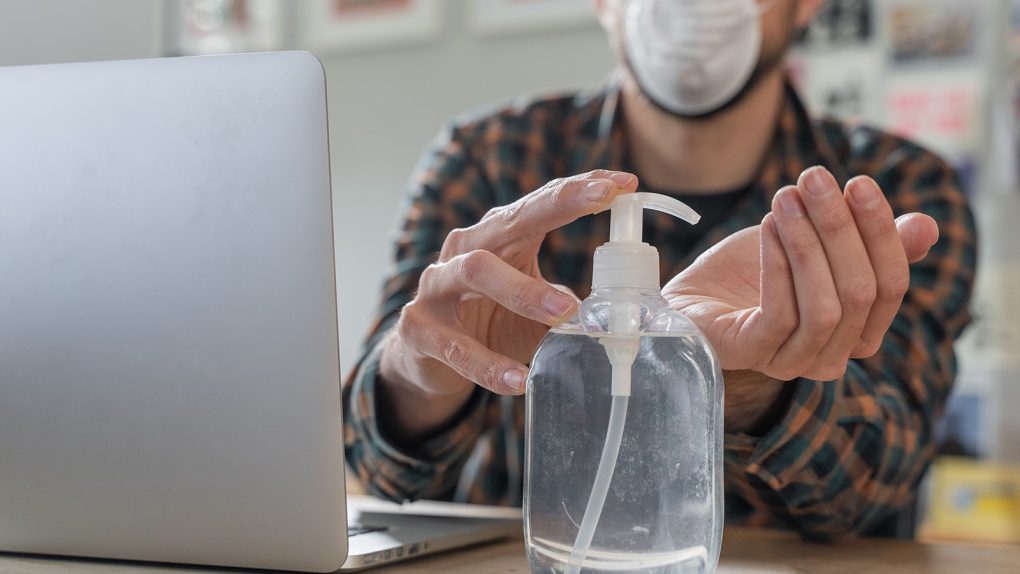- Confirmed cases of the novel coronavirus have now surpassed 1 million globally, including more than 250,000 COVID-19 cases in the United States alone.
- In the US in particular, there are no signs that the new coronavirus outbreak is slowing down.
- Even if you’re as careful as possible, there is still a possibility that you can contract the potentially deadly disease, and you should know what to do if you think you might be infected.
- Visit BGR’s homepage for more stories.
You know you should be staying home at all times unless you absolutely need to go out. You know that when you do go out, you should practice social distancing. You know you should avoid touching your face at all costs anytime you’re out, and you know you need to wash your hands thoroughly anytime you touch a surface in a public space. You also know how to make your own DIY face masks so you can give yourself a little extra protection without buying the surgical masks or N95 masks that doctors, nurses, first responders, and other people on the front lines need so desperately. You know all this, and yet there is nothing you can do to remove any and all possibility that you’ll be exposed to the novel coronavirus and become infected with COVID-19. Unless you live in a bubble with a few months’ worth of food and supplies, there is a chance that you’ll contract COVID-19.
With that in mind, everyone should be aware of early symptoms to look for. While many COVID-19 symptoms are similar to the common flu or an upper respiratory infection, there are a few common indicators that it might be a novel coronavirus infection instead. Most people experience a fever and a dry cough, but difficulty breathing is also a telltale symptom. It’s also one of the more severe symptoms of COVID-19, so you should contact your doctor immediately. In some cases though, there are signs that appear long before any respiratory issues — if you lose your sense of taste or smell or if you experience unusual dizziness or confusion, contact your doctor right away. But what else should you do? Thankfully, the CDC has a comprehensive guide that will walk you through everything you need to do if you think you might have COVID-19.
“If you have a fever or cough, you might have COVID-19,” the CDC says on its site at the very top of its guide on what to do if you are sick. “Most people have mild illness and are able to recover at home. Keep track of your symptoms. If you have an emergency warning sign (including trouble breathing), get medical attention right away.”
If there’s one paragraph and only one paragraph in the CDC’s entire guide that you read and take to heart, it should be that one. The last thing you want to do if you think you’ve contracted COVID-19 is hop in a cab or on some form of public transportation and go to the hospital. You’ll be putting everyone you go near along the way at risk. Stay home, isolate yourself from any family or roommates with whom you live, and contact your doctor via phone if you have any big concerns or severe symptoms. Isolating yourself in your home is important because there’s still a chance you can prevent yourself from spreading it to others in your household. Remember, the novel coronavirus can survive in the air for 3 hours or longer in enclosed spaces, and it can survive on may common surfaces for up to 3 days.
Here’s how the CDC page words its advice:
- Stay home: Most people with COVID-19 have mild illness and are able to recover at home without medical care. Do not leave your home, except to get medical care. Do not visit public areas.
- Stay in touch with your doctor. Call before you get medical care. Be sure to get care if you have trouble breathing, or have any other emergency warning signs, or if you think it is an emergency.
- Avoid public transportation: Avoid using public transportation, ride-sharing, or taxis.
- Stay away from others: As much as possible, you stay away from others. You should stay in a specific “sick room” if possible, and away from other people in your home. Use a separate bathroom, if available.
The CDC also says you should wear a face mask to avoid spreading COVID-19 to others, if you have one available. No, you shouldn’t rush out to buy surgical masks or N95 masks, because healthcare professionals and first responders have a much greater need. Instead, make some DIY face masks yourself.
There is plenty more good advice to be found on the CDC page, like how and when to properly clean “high-touch” surfaces, when to seek medical attention, and how to discontinue home isolation in the event that you do get sick. Despite how scary the global infection rate and death toll figures are, it’s important to remember that the vast majority of cases are relatively mild and they clear up on their own in time.








